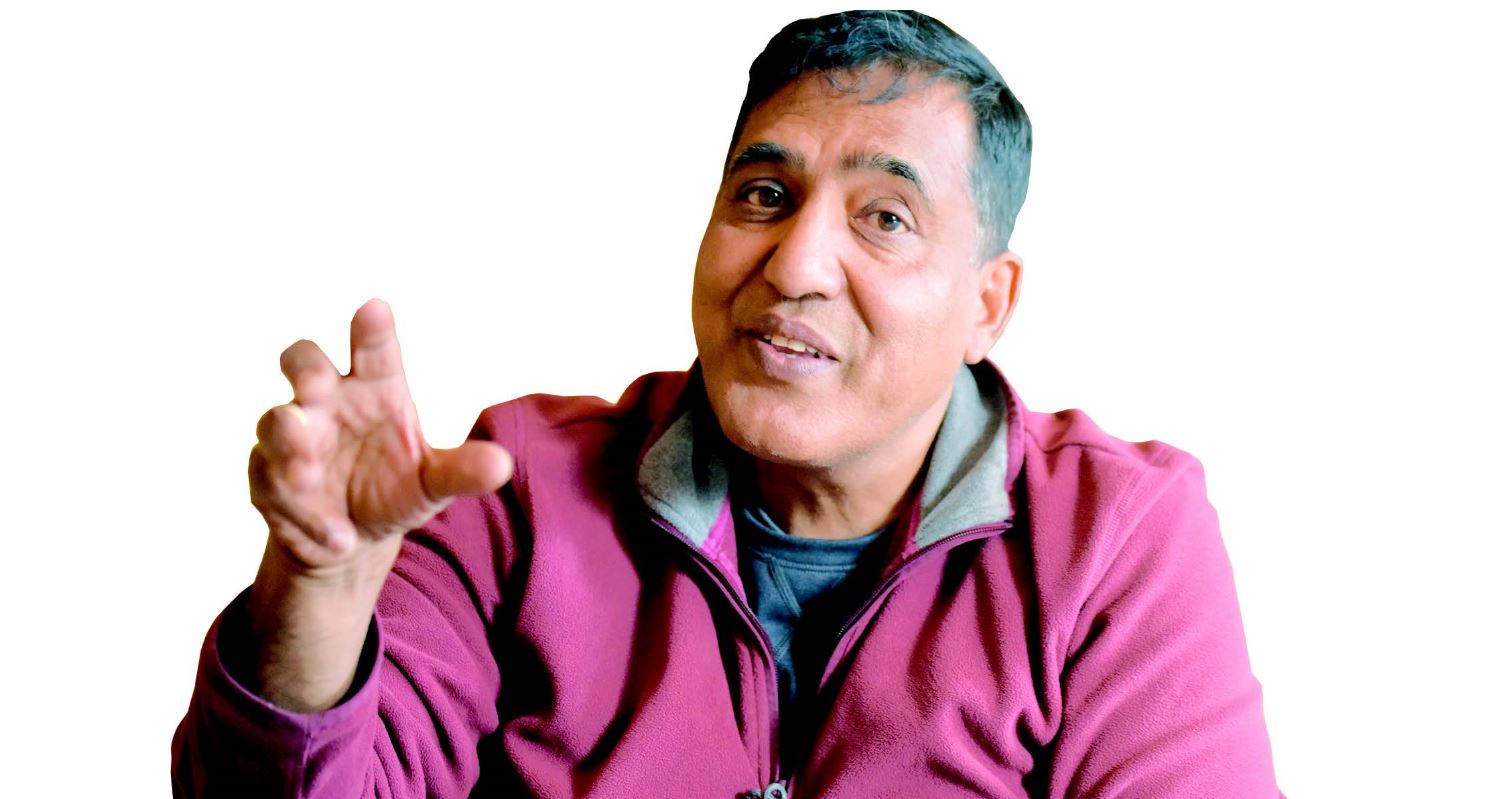Locals demand Chisapani land
Locals in Chisapani, Bardaghat Municipality-2, Nawalparasi, have demanded that 8.5 bighas of land be transferred to the local government. The land, registered under the National Housing Company Limited Planning Office, Nawalparasi, has been at the center of controversy for years. Originally, 17 bighas, 12 katthas, and two dhurs in Makar-2/C, Plot No. 1310, were designated as a “Green Belt” in 1977. However, the dispute escalated after the survey office registered it in the name of the housing company on 16 Aug 2004.
Of the total land, about nine bighas were handed over to Divya Jyoti Multiple Campus. Locals are now demanding that the remaining eight bighas, two katthas, and 12 dhurs be transferred to the local government. Meanwhile, the housing company has sold three bighas to Timilsina Traders through a tender process.
Residents strongly oppose the sale and have urged the government to form a “Chisapani Land Facilitation Committee” to bring the land under local ownership. “Locals have been protecting this land since 1977. We believe it was sold in collusion with the land mafia. All of it, including the portion already sold, should belong to the local government. We are ready to pay the required price,” said Prem Bhujel, coordinator of the committee.
Currently, Chisapani Hospital operates on about five bighas of the land, with a trauma center under construction on the same site. Forty-two unorganized houses also exist in the area. The committee has been holding consultations with political parties, organizations, and stakeholders from ward to district levels, while also collecting signatures in support of its demand.
The three bighas sold to Timilsina Traders have yet to be transferred. Although the land was auctioned for Rs 220m about three years ago, the transfer stalled due to local opposition. Some residents filed a case in the Supreme Court seeking cancellation, but the Court ruled in favor of the traders.
According to Mahendra Thapa, head of the National Housing Company Planning Office, the traders paid only a 10 percent deposit and have not cleared the remaining amount. “There is pressure to divide the land into 52 plots and hand it over, but the process has stalled due to local resistance,” Thapa said. He added that the sale was conducted in line with government rules and that further decisions rest with the government.
Bardaghat Municipality Mayor Shambhulal Shrestha said efforts are underway to bring more than five bighas of the disputed land under municipal jurisdiction. “Out of the eight bighas, three have already been sold, and since the Supreme Court has ruled on that, nothing more can be done. But we are working to secure the remaining land in the municipality’s name,” Shrestha said.
The municipality has also leased 1.5 bighas from the National Housing Company for 40 years at an annual fee of Rs 350,000. A trauma center is currently under construction there, while initiatives are being taken to provide land documents to Chisapani Hospital and local residents living in unorganized settlements.
Fertilizer stuck in Nawalparasi, farmers affected
Most cooperatives in Nawalparasi have yet to collect urea fertilizer supplied to the district, leaving farmers unable to access it.
According to the Agriculture Inputs Company’s Parasi branch, 215 metric tons of urea was sent to the district on Aug 4 via the province ministry. However, as of Tuesday morning, only 79.8 metric tons had been collected by cooperatives, with 135.2 metric tons still in storage. Out of 79 cooperatives in seven municipalities, only 34 have taken delivery.
Under the existing system, local fertilizer supply and distribution committees—coordinated by vice chairpersons or deputy mayors—assign cooperatives the responsibility of purchasing fertilizer from the Agriculture Inputs Company and selling it to farmers. Despite this arrangement, many cooperatives have shown little urgency in collecting the supply.
Deputy Mayor of Ramgram Municipality, Samjhana Chaudhary, acknowledged delays, saying some cooperatives cited a lack of funds. She said they would be instructed to collect the fertilizer immediately. Similarly, Susta Rural Municipality Vice-chairperson Gita Chaudhary said they had already directed cooperatives to arrange funds and take delivery promptly. Sarawal Rural Municipality Vice-chairperson Basmati Harijan reported that most cooperatives in her area had already collected their quota, and the rest would do so within a day or two.
Farmers have also criticized the fertilizer distribution system in some local units. While some areas distribute through cooperatives and dealers, others use a coupon system managed by ward chairs. Farmers allege that this system often benefits only the ward chair’s close associates and is the most opaque method of distribution.
My Vision for Nepal | Full realization of inclusive, diverse, federal, and secular Nepal
Full realization of inclusive, diverse, federal, and secular Nepal
Three ways to realize the vision:
1) By restoring political accountability.
2) By having the courage to admit our mistake and learn from it.
3) By reflecting on our spiritual values, and the meaning and purpose of the institutions we serve.
I have had the opportunity to work with the government and political parties and participate in various political movements. All this while, I have always been struck by the diversity and plurality of Nepal, its ideas, heritage, and institutions. The constitution we have today also talks about inclusion, diversity, plurality and their place in the global setting. I thus want to see my country really embody the principles of pluralism, diversity, tolerance, and mutual respect.
Unfortunately, because of our geopolitical location and fragile political institutions, I find the realization of the ideal of a plural and tolerant society a little illusive. But I am optimistic that we will see such changes in our lifetime. So, again, I imagine a plural, diverse and tolerant Nepal.
The embodiment of these values is easier said than done in today’s partisan political climate. Yes, the political parties are organized around the concept of power and they need to compete with each other. But I wonder if anyone in the political leadership in Nepal questions themselves why they are in politics. I speak of politics in terms of its larger goal for the society and in fact for the whole of humanity.
Our everyday politics seems unconcerned with the larger public good. It has become a narrow, self-interest guided machine. We have a political system that gives us a big umbrella under which different ideas and possibilities are mediated through peaceful democratic means. But there has always been this debate in political science about what matters more: voice or number?
In the everyday democratic process, we have been informed that numbers matter, which is a utilitarian, and interest-maximizing side of politics. But so long as there is a single poor or hungry citizen, or a victim who has been denied justice, number is not an issue. We should devise certain structures or prepare such a political climate so that those at the margins whose voices are not represented are counted as well.
In a theoretical sense, our country was never colonized. But we have been unable to escape the political economy of geopolitics, imperialism, and colonialism. We were a larger part of the global and regional frameworks even as an independent nation state. Over time, we have lost our ability to project ourselves as the normative torchbearer of political values and principles. The solution is to practice active diplomacy and speak up on normative issues like climate, justice, discrimination and poverty. I want to see a more dynamic and participatory country in the global processes. We safeguard not only our interest but also our autonomy through active diplomacy and presence in the global arena.
The other thing is that our education system is in disarray. We have a state-private sector hybrid model. But I believe basic quality education should be the state’s sole responsibility. This is where my state has failed. In this pandemic, we also realize that public health is important. Our public health system is dysfunctional. I would like to see every Nepali covered by a universal healthcare insurance system.
Most importantly, the current pandemic and bad governance is defeating the very idea of a state in Nepal. Why do we need a state? For collective security and safety. But during this pandemic I see various policy failures due to bad governance. The state’s role can’t be ignored in a country like ours. The state is obliged not just to collect taxes but also to care for us. I thus imagine a bare-minimum democratic, welfare state.
Again, we see a collective failure of the Nepali state and society in these hard times. I haven’t seen any political or social leader publicly admit their mistake. Where is the accountability? The first step is to restore political accountability. By this I mean public accountability: do what you publicly commit to doing. This applies to both individuals and institutions. If you don’t do that, you have to bear the responsibility. One of the big challenges for Nepal is to ensure such public accountability.
In a democracy, the very idea of equality and equal opportunity and participation means anybody can become a leader. But the institutional arrangement of accountability is more important. People should constantly be questioning. Sometimes we expect too much of our leaders, but we forget our own responsibility. We need to be vigilant, as vigilance is the price of democracy. In our case, we see overall institutional decay. We need to find collective resolve to move ahead.
Where will this collective resolve come from? It comes from failures too. You have to have the courage to admit your mistake and to learn form it. Instead we in Nepal are headed towards a large failure of public service-delivery. If we are to improve, we need to change the way we do politics.
What has been missing in present-day politics and social discourse is deliberation on the meaning of collective life. It is hard to overstate the importance of institutions, of collective life. We have been too individual-focused. We never discuss why we are participating in individual and collective affairs. Why does one need to be a PM five times, or head a university repeatedly? We need institutions that evolve with time. We need to reflect on our spiritual values, the meaning and purpose of the institutions we serve, the meaning and purpose of being a political actor or any other work you maybe involved in.

Quick Questions
Which Nepali leader has come the closest to embodying your vision?
BP Koirala.
Biggest lesson from your time in government.
To fight for democracy is one thing, building a democracy is a completely different art.
A book on Nepal that has influenced you the most.
I will name two: Strategy for Survival, by Leo E. Rose; and Democratic Innovations in Nepal, by Bhuwan Lal Joshi and Leo E Rose.










